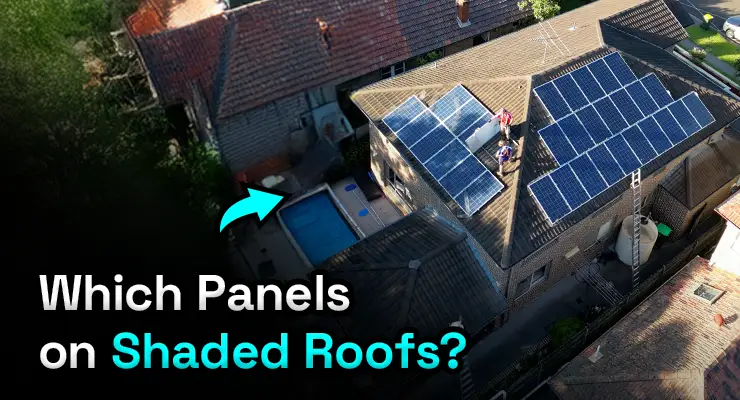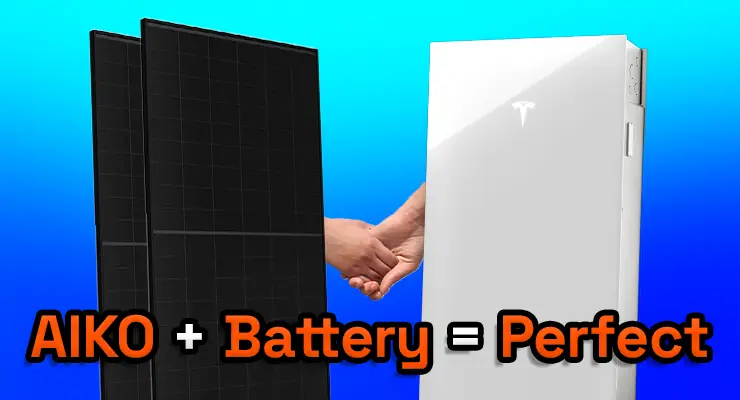Fast read
Solar panels do not increase the risk of cancer or emit dangerous toxins, contrary to rumours.
Worries about EMFs from solar panels are unnecessary. The EMFs they emit are lower frequency than those from everyday appliances. Modern silicon cell-based solar panels used in Australia do not contain known carcinogenic chemicals like Cadmium telluride.
Rules are there to keep people safe when making and installing things, ensuring that parts are handled and disposed of safely. Scientific evidence supports the safety of solar panels, making them a reliable and sustainable source of energy.
Do solar panels cause cancer?
Over the years, there have been rumours that solar panels might cause cancer or release harmful toxins. Some worry about the materials used in making them, like Cadmium telluride, which can be dangerous.
But here’s the thing: most solar panels today, especially the ones you see on roofs, don’t use harmful stuff like Cadmium telluride. They’re made with safer materials, like silicon cells.
Studies done by experts haven’t found any solid proof that solar panels cause cancer or emit toxins. So, it seems like modern solar panels are pretty safe to use.
What about electromagnetic radiation through solar panels?
Cancer fears are frequently associated with worries about electromagnetic fields (EMFs) emitted by solar panels. Indeed, electrical appliances and power wires produce EMFs.
Composition and Operation: Solar panels utilise photovoltaic (PV) cells to convert sunlight into electricity. Importantly, the process is based on the interaction between sunlight and semiconductor material.
EMF Emissions: Solar panels emit extremely low-frequency (ELF) EMFs. According to the World Health Organisation (WHO), ELF magnetic fields are classified as “possibly carcinogenic to humans,” but this is based on consistent statistical associations of higher-level exposures (such as those associated with certain jobs like near high voltage power lines or electrical substations) with a two-fold increase in childhood leukaemia (WHO, 2007). Nevertheless, the levels emitted by solar panels are far below those linked to any health risks.
While solar panels do produce low-frequency EMFs, they are substantially less than those produced by typical home appliances. Many studies have not found a strong link between low-frequency EMF exposure and a higher chance of getting cancer.
Regulations and Standards: Solar panels adhere to international safety standards and guidelines, such as those by the International Electrotechnical Commission (IEC).
Other inverter technologies: If microinverters or power optimisers are used, these can reduce the already low risk of RF radiation even further by reducing the power voltage on the roof. Therefore, this approach adds another layer of safety to the use of solar technology.
And inverters?
- Function: Inverters change DC electricity into AC electricity for household use.
- EMF emissions: Modern inverters are designed to minimise EMF emissions, and shielding and proper installation further reduce exposure.
- Location and solar installation: Distance acts as a natural barrier, and EMFs decrease rapidly with distance.
Solar panel cancer concerns
- Current understanding of EMFs and health: A comprehensive review by the National Institute of Environmental Health Sciences (NIEHS) found no consistent evidence that non-ionising radiation from household appliances, including solar panels and inverters, increases the risk of cancer (NIEHS, 1999).
- International Guidelines: The International Commission on Non-Ionising Radiation Protection (ICNIRP) has set exposure limits for EMFs, and solar technology complies with these guidelines.
- Lack of Mechanism: Solar panels and inverters emit non-ionising radiation, which lacks the energy to damage DNA. The WHO and other groups say there is no proof that being around low-level fields causes health problems. (WHO, 2007)
Are there any chemicals involved?
Recently, people have discussed whether solar panels are harmful because of chemicals like Cadmium telluride that they may contain. This chemical has been linked to causing cancer, so it’s understandable why people might be worried. However, it’s essential to set the record straight, especially regarding the solar panels you commonly find on roofs in Australia these days.
The truth is, that the newer solar panels you see around, particularly those using silicon cells, don’t have any of these harmful chemicals in them. That’s good news for anyone concerned about their health and safety.
In matters of health, it’s always wise to listen to the experts. Doctors, cancer researchers, and other trusted groups have studied this. They all say that solar panels are safe to use. They’ve conducted studies and evaluations to confirm this, and their findings should reassure anyone who might have had doubts.

Are there health and safety standards?
Solar panels themselves don’t release anything that can cause cancer. However, compounds that could be dangerous are used throughout the production process. Strong laws and industry standards are in place to reduce these dangers and safeguard both employees and the environment. Manufacturers of solar panels are expected to follow stringent regulations for the handling, disposal, and recycling of components like silicon, cadmium, and lead.
Solar panel manufacture and installation must adhere to health and safety regulations set forth by governments and regulatory organisations globally. These guidelines address issues concerning exposure limits, emissions, and occupational health. Manufacturers can guarantee the secure manufacturing and disposal of solar panels by adhering to these rules.
So do solar panels cause cancer?
Solar panels and inverters are built to follow strict rules and standards to make sure they don’t produce harmful electromagnetic fields (EMFs). Scientists and experts agree that solar technology is safe. Big groups like the World Health Organisation (WHO) and the International Commission on Non-Ionising Radiation Protection (ICNIRP) say so. They’ve done research, too, like the National Institute of Environmental Health Sciences (NIEHS).
These groups keep studying and checking if solar panels and solar inverters are safe. This shows they truly value making sure they’re safe to use. Because of this, people can trust that solar energy systems are reliable and won’t harm them.
References
- World Health Organisation (WHO). “Extremely low-frequency fields” Environmental Health Criteria, vol. 238, 2007.
- National Institute of Environmental Health Sciences (NIEHS). “Electric and Magnetic Fields Associated with the Use of Electric Power.” NIEHS Working Group Report, 1999.
- International Commission on Non-Ionising Radiation Protection (ICNIRP). “Guidelines for Limiting Exposure to Electromagnetic Fields.” Health Physics, vol 118, no 5, 2020.
Please note that scientific understanding evolves, and consequently, the interpretation of existing data can change over time. Therefore, it is always good to consult with a medical or scientific expert who is familiar with the latest research.
Overall
In conclusion, based on the available scientific evidence, solar power systems do not emit anything that can cause cancer. The worries about solar panels’ potential link to cancer risk are generally unwarranted. Indeed, solar panels produce low-frequency EMFs that are far less than those given out by typical home appliances. The manufacturing process utilises some hazardous materials, but stringent guidelines and standards exist to safeguard the environment and the workforce.
As such, solar energy remains a practical and long-term source of power. When assessing the possible hazards and benefits connected with solar panel technology, it is crucial to rely on scientific data and correct information. By doing this, we can make wise choices and help the environment without worrying excessively about cancer risks.



